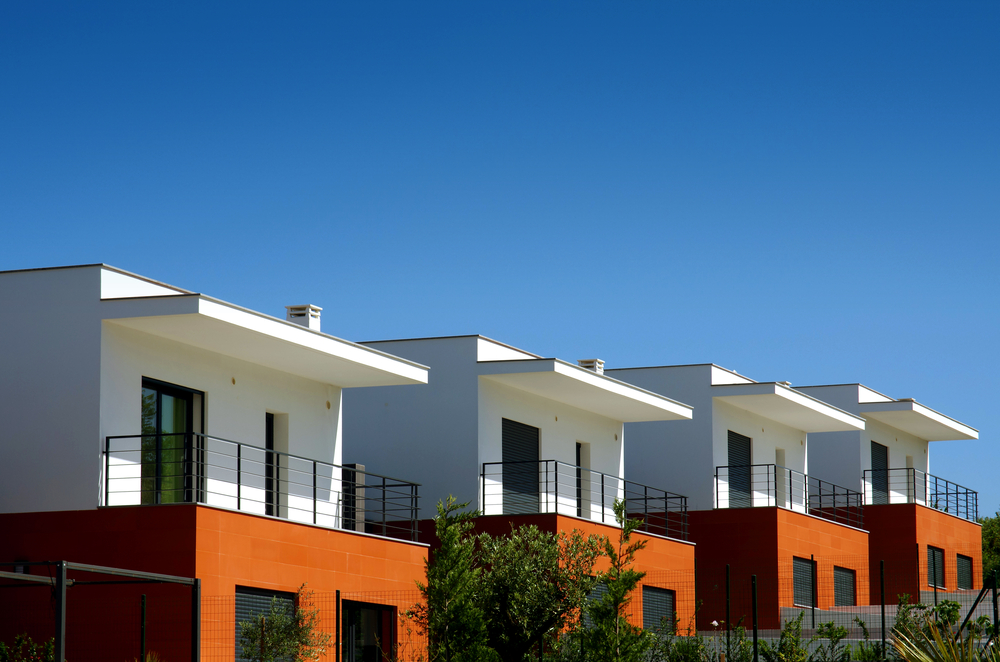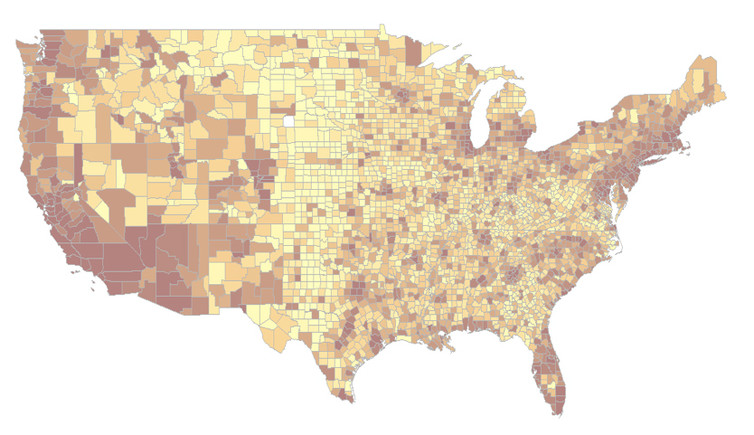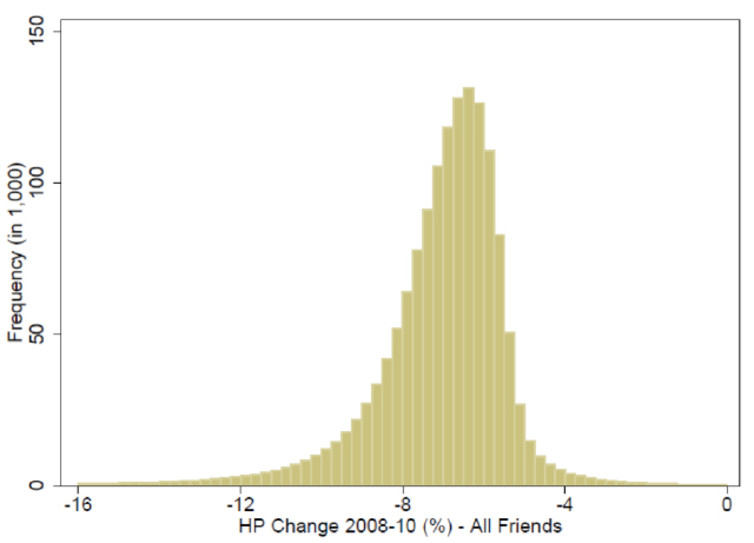Updating my Status to Homebuyer

Please note that we are not authorised to provide any investment advice. The content on this page is for information purposes only.
People interact with their family, friends and coworkers on a daily basis, both through online social networks and in real life. The effects of such social interactions on economic and financial decision-making, however, are not well understood.
Do such interactions influence people’s assessment of the attractiveness of investments such as houses or stocks, and is this reflected in actual investment behavior? In addition, can social interactions influence market-level trading volume and asset prices?
People interact with their family, friends and coworkers on a daily basis, both through online social networks and in real life. The effects of such social interactions on economic and financial decision-making, however, are not well understood.
Do such interactions influence people’s assessment of the attractiveness of investments such as houses or stocks, and is this reflected in actual investment behavior? In addition, can social interactions influence market-level trading volume and asset prices?
Recent research we conducted on the housing market makes progress toward better understanding the importance of social interactions in shaping economic and financial decision-making. In particular, we analyzed whether people are more likely to consider housing a good investment if their friends experienced recent house price increases and whether this affected their actual real estate investments.
Measuring friends’ house price experiences
We started our research by constructing a measure of the house price experiences of different people’s friends. In other words, we wanted to capture how house prices changed in those locations where an individual has friends.
To do this, we analyzed an anonymized snapshot of Facebook’s social graph, which consists of all friendship links between Facebook users in the U.S., combined with the county-level location of each user.
For example, we created a heat map that shows the overall number of friendship links of all residents of Los Angeles County with residents in all other counties in the continental U.S., where darker shades mean more connections. As you would expect, there are some parts of the country with relatively more friendship connections to L.A., and others with fewer such connections. L.A. residents have the most friends around L.A. itself, but also elsewhere on the West Coast, in the New York area and in Florida.
This map shows where L.A. County residents have the most friends. Author provided
One thing worth mentioning is that while we measure the location of individuals’ friends through Facebook, we believe that this is informative of where these individuals’ broader social networks are located. This broader social network includes their friends that might not be Facebook users, and whom they would interact with offline.
We combined this information on where individuals’ friends live with data on how house prices evolved in the last years in these locations. For each individual in L.A., we then calculated the average house price experience of all of her friends – or, in other words, the house price experiences in her social network. Since house price movements are not the same across the U.S., individuals with friends in different parts of the country see very different house price experiences in their social networks.
As an illustration, we showed the distribution of the house price experiences in the social networks of all L.A. residents between December 2008 and December 2010. You can see that some individuals living in L.A. had friends that experienced an average house price decline of 12 percent over this period, while others had friends who experienced an average house price decline of about four percent.
This figure shows the ‘house-price experiences’ of residents of L.A. County. Author provided
Impact on housing market perceptions
After getting a sense of the different house price changes that people experienced through their friendship networks, we wanted to investigate whether social interactions with these friends actually affected their decisions to invest in real estate. We looked at this in two ways: by considering how attractive they considered investing in local real estate to be and by analyzing their actual home purchase behavior.
To evaluate the effects on housing market beliefs, we analyzed responses to a housing market survey conducted among Los Angeles-based Facebook users. The survey asked users how often they discussed property investments with their friends and how attractive they thought investments in their own local housing market were. We discovered a strong relationship between the housing market experiences within a respondent’s social network and the extent to which that respondent considered local real estate to be a good investment.
That is, if a respondent’s friends lived in counties that experienced sharp price drops, then he or she would be less likely to perceive their local housing market as attractive, and vice versa. We also found that the beliefs of those respondents who reported talking regularly about housing investments with their friends were more influenced by their friends’ house price experiences.
These findings suggest that people’s perception of the attractiveness of their local housing markets actually changed because of the house price experiences of their friends.
Impact on housing investment decisions
We also wanted to see if we would find an impact of the house price experiences of people’s friends on their actual housing market activity. For example, does experiencing rising prices through one’s friends make someone more likely to buy a home?
To analyze this question, we examined public record deeds data of Los Angeles-based Facebook users. We focused on three aspects of housing market behavior: the likelihood of a renter becoming a homeowner, the size of the purchased house and the price paid for the home.
We found that renters whose friends experienced a significant increase in housing prices were more likely to buy a home over the subsequent two years. Specifically, we found that, on average, about 18 percent of renters in our sample became homeowners during that period of time. However, for every five-percentage point higher house price experience of their friends, renters were 3.1 percentage points more likely to buy a home.
Our research also showed that those individuals bought homes that were, on average. 1.7 percent larger, and were willing to pay 3.3 percent more for a given property. Conversely, homeowners whose friends experienced housing price decreases were more likely to sell their properties and become renters.
Overall, these findings on the investment behavior of individuals are highly consistent with our conclusions from the expectation survey: People that experience substantial house-price growth in their social network become more optimistic about their local housing market and actually end up investing more in real estate.
We also analyzed whether the dispersion in house-price experiences within a person’s social network affects that person’s housing investment behavior. That is, we considered whether people behave differently when they are exposed to friends with very different house price experiences relative to people whose friends all had similar experiences.
We find that given the same average experience of a person’s friends, having more extreme positive and negative experiences (i.e., a higher dispersion) within one’s social network leads to less investment in housing. We think that this is likely the case because experiencing more extreme housing market outcomes through one’s friends signals that housing is a more risky investment.
What’s the broader impact?
These effects of friends’ house-price experiences on individual-level housing investments are statistically significant and quantitatively large. However, can they fundamentally affect what happens across an entire housing market?
To answer this question, we considered the extent to which these individual decisions aggregate up to influence county-level real estate trading volumes and house prices. We carried out this analysis by examining data from 831 U.S. counties between 1998 and 2012.
For the nitty-gritty of how we did this analysis, you can read our report. However, to summarize our results, our estimates suggest that higher house-price experiences of the friends of people living in a county do in fact lead to an increase in county-level housing prices.
This suggests that social interactions can propagate house-price shocks across the United States.
For example, consider the recent tech boom driving up house prices in Silicon Valley. Our findings imply that individuals in other counties with friends in Silicon Valley are likely to become more optimistic about their own local housing market, even though there might be no fundamental reason for this. In this way, fundamental house price increases in some parts of the U.S. can cause price movements that look like housing bubbles in other parts of the United States.
So what can we make of all this? To us, these findings highlight that social interactions do indeed have a large impact on individuals’ housing market beliefs and housing investment behavior. More broadly, we expect that social interactions also play an important role in other domains of economic and financial decision-making, and we hope that future research can shed further light on this.
Can your Facebook friends influence your decision to buy a house? is republished with permission from The Conversation







